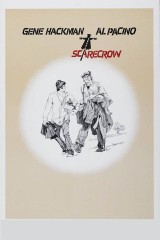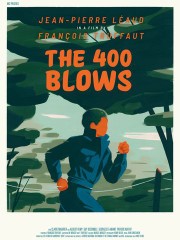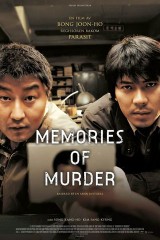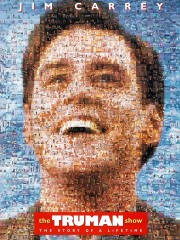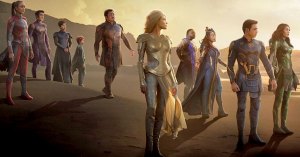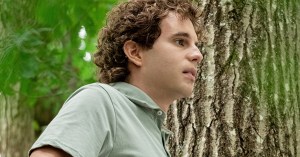Tahar Rahim’s Five Favorite Films
The recently Golden Globe-nominated star of A Prophet and The Mauritanian loves the New Hollywood of the 1970s and wants to work with the Safdie brothers.

(Photo by Stephane Cardinale - Corbis/Getty Images)
French-Algerian actor Tahar Rahim first rose to international acclaim with his performance in Jacques Audiard’s 2009 crime thriller A Prophet, which debuted at Cannes to rave reviews and went on to earn an Academy Award nomination for Best Foreign Film. It wasn’t his first feature film, but it was the one that opened the doors for him to work with an eclectic mix of filmmakers that includes Asghar Farhadi (The Past), Fatih Akin (The Cut), Kiyoshi Kurosawa (Daguerrotype), and Kevin Macdonald (The Eagle).
Rahim’s latest project reunites him with Macdonald for a challenging role in a based-on-true-events drama, The Mauritanian. In it, he plays the titular character, Mohamedou Ould Slahi, who was kidnapped from his home country in 2002, transported to the U.S. military prison at Guantanamo Bay, and detained there without being charged with any offense for 14 years before he was ultimately released. The film details not only Slahi’s harrowing experiences at the facility, but also the efforts of ACLU attorney Nancy Hollander (Jodie Foster) to afford him due process and the shocking discoveries made by the U.S. government’s own military prosecutor, Stuart Couch (Benedict Cumberbatch). Working alongside a star-studded cast that also includes Shailene Woodley and Zachary Levi, Rahim’s standout performance recently earned him a Golden Globe nomination for Best Actor.
Rotten Tomatoes had the opportunity to speak with Rahim ahead of the Globes to talk about the new film, describe what it was like to meet and spend time with the real-life Mohamedou Ould Slahi, and drop a wish list of directors he’d love to work with (somebody please get him a meeting with the Safdie brothers). Before that, though, read on for Tahar Rahim’s Five Favorite Films.

(Photo by ©STX Entertainment)
Ryan Fujitani for Rotten Tomatoes: The Mauritanian is not the first time you’ve portrayed a real person on film. Do you find that it’s more freeing to play a character based on a real person because you have a template to follow? Or do you enjoy more getting to collaborate and infuse a fictional character with your own ideas?
Tahar Rahim: I think right now, I’d say it’s, in a way, easier to portray someone who is a real life character, because the range of liberty you have is limited. They don’t go all over the place. The main answers you need to know for questions about your character, you have them. And you don’t have them in 100 pages, you have them from someone who’s been living for years, decades, so he knows exactly what he’s talking about. You don’t even have to, “No, you know, I think the character would answer this way.” You don’t have any conversation about who the guy is. He is who he is. It helps a lot.
But on the other hand, the problem is that you have a responsibility to not, in a way — let’s use this word, and I don’t know if it’s the right one — but to not betray that person and his identity and his personality, his life, what he’s been through. You still have some freedom because he’s not a famous person, but not a lot. I don’t know if it feels better to play someone who’s a real life character or just a character. I don’t know if it feels better because it’s a whole thing. It’s not just about a performance, it’s about your relationship with your partners, with the director, the story, the script, and the whole thing.
Rotten Tomatoes: I know you met Mohamedou Ould Salahi before you shot the film. Was there anything about him that surprised you, or anything unexpected about him? Something you were able to work into your performance?
Rahim: I knew about him because I read the book, I talked with [director Kevin Macdonald], I had his recordings. So I had enough materials to make my research. But I needed to meet him for other reasons, to know him and to understand the way he moves, he talks, whatever. But I was so surprised to see how funny the guy was. Everybody would say it, but I couldn’t expect that he would be that funny, because sometimes he was sarcastic, sometimes just funny. That surprised me a lot.
But you know, it was not just a joke. He likes to joke around. But instantly he can find a good joke that is connected to the context. It’s not just written jokes; he’s taking advantage of the situation and turning it into something funny. You need to be very talented to be able to do that, because it’s like improvisation. It’s like asking a comedian on stage to improvise. They need to improvise between their jokes, the things that are written. It’s a real job. This guy has it naturally.
But also, the fact that he was full of life, full of life. Very nice. When you know what he’s been through, it’s almost impossible to believe. The trauma is still there; he manages in some ways to control it, so you don’t see it.

(Photo by Graham Bartholomew/©STX Entertainment)
Rotten Tomatoes: This is a difficult role for anyone, and I would ask how you would normally decompress or de-stress during shooting, but you’ve said that you basically didn’t, because you were afraid you would lose everything you had put into the character. Doesn’t that take a bit of a toll on you?
Rahim: Of course, of course. But I was lucky to shoot that abroad, to shoot this movie abroad. I was alone, with just one of my best friends. Otherwise, if this movie was shot in Paris and I had to see my family and my wife, my kids every day, it wouldn’t have been possible to portray Mohamedou the way I… to give my all.
I got really lucky. I didn’t want to be disturbed. It’s such a difficult part that once I caught him, I didn’t want to let him go. I know myself. I’m almost 40; I know if I start to get relaxed too much, I’m getting out of my character, and then to get back in, it’s hard.
Rotten Tomatoes: You obviously take your work very seriously, and you’ve been able to work with a wide variety of filmmakers from all kinds of backgrounds across different genres to build a really eclectic resume. But you’ve also expressed in the past that there are some Hollywood directors you’d love to work with. If you had to name the top three on your wish list, who would they be?
Rahim: Of course, Martin Scorsese. Paul Thomas Anderson. Who else? There’s so many great directors. I’d say [Alejandro González] Iñárritu. You know what? from the new generation, definitely the Safdie brothers.
Rotten Tomatoes: I could absolutely see you in a Safdie brothers movie.
Rahim: You know, Good Time was a beautiful surprise. I was like, “Oh, man!” You can feel the New Hollywood references, but it’s not copying. It’s not about that. They’re talking about their time, the people they met, their life, their New York, and it’s incredible. It reminded me of New Hollywood, without copying them. I found it so clever and so brand new, in a way, in the way they shot, in the way they direct their actors, and the last film they did, Uncut Gems, the last 13 minutes… It’s like a James Brown concert. It’s like James Brown saying, “We’re going to shake them. Shake them ’til the end.” I was like, “Whoa. Okay, these guys are great.”
The Mauritanian was released on February 12, 2021.
Thumbnail images: Everett Collection, ©Neon


